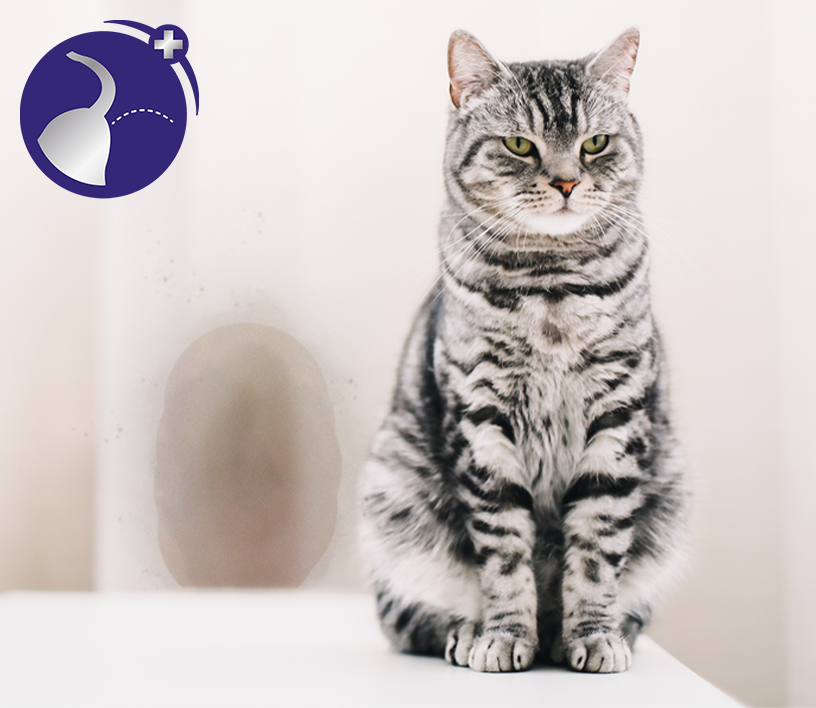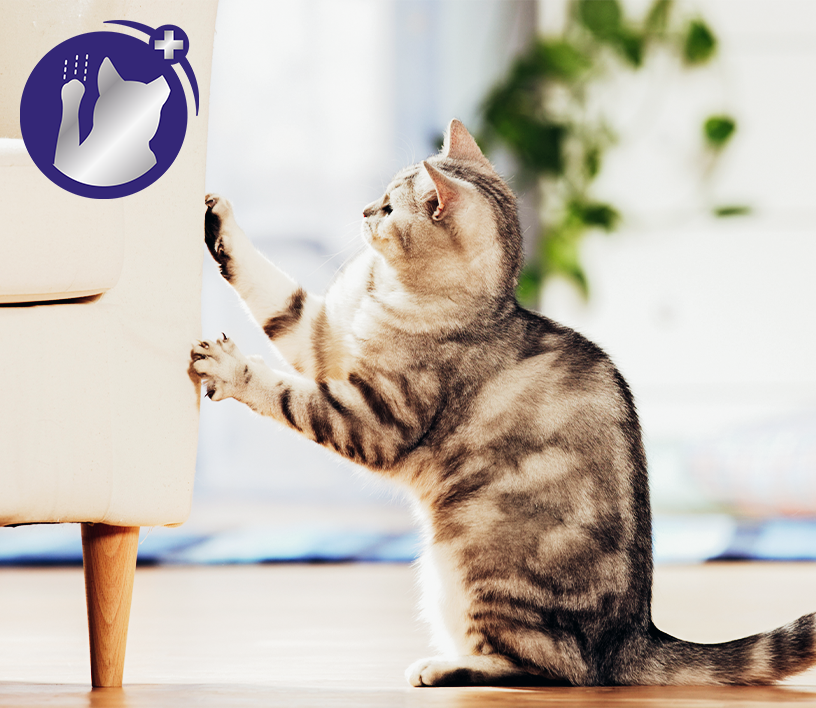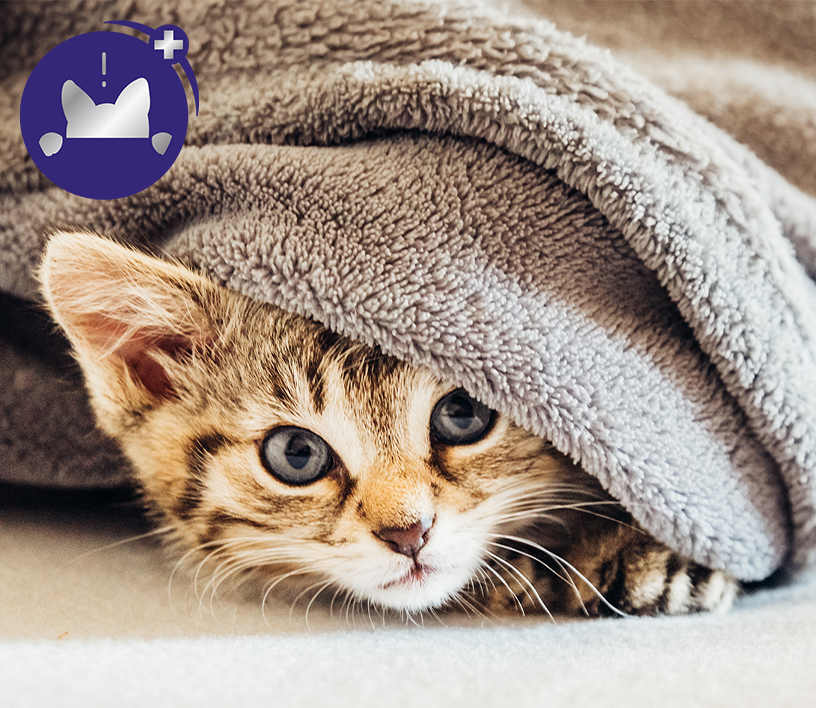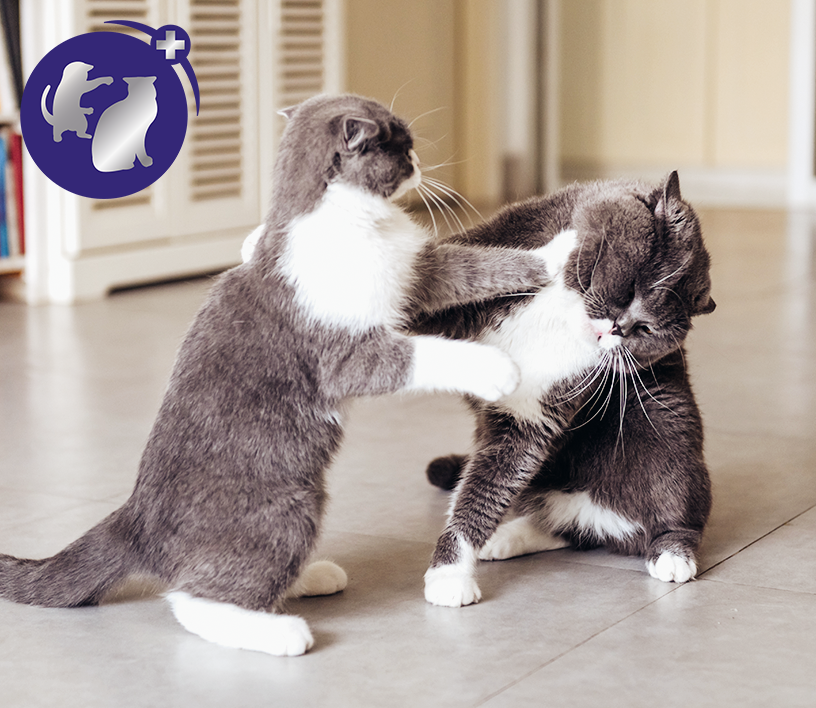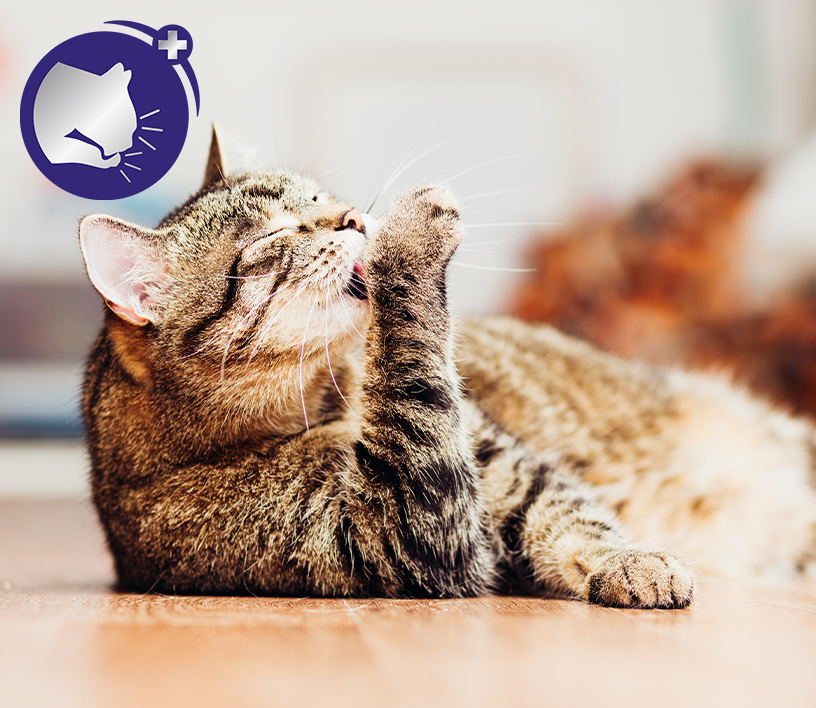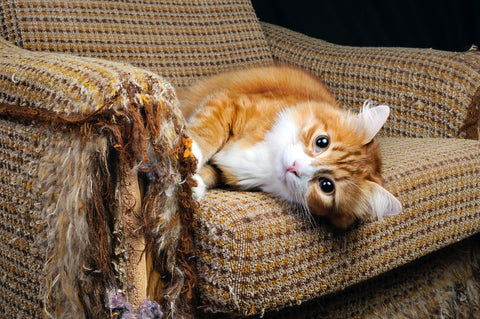
My Kitten Won't Leave my Cat Alone! A Kitty's Point of View!
Meow! Hello cat lovers! I wanted to talk to you today about introducing a new kitten into your home, when you already have a resident feline friend. I think I'm qualified to do this, because I've been there, so I know what I'm talking about.
I agree with you, kittens are beautiful (I used to be one myself); they are small, cuddly and oh, so cute! But they can also be very exuberant, inquisitive, persistent and often won't leave the older cat alone!
You should, therefore, be mindful of the needs of both the kitten and the older cat when you bring a new kitten home. Here are a few tips, from my point of view:
Kitty introductions
First impressions count. When Felix, our new kitten, was brought home, my humans knew how important our first encounter would be, and that it would not only impact the relationship I had with Felix, but it could also affect the mood of the whole household.
At the beginning, they never left us on our own, but were always there to supervise Felix's behaviour. He had to learn the boundaries of being around an older cat, just as much as I had to learn how to tolerate having another cat around the house. This is an important stage; if your cats get off to a bad start in their relationship, it's difficult to get them to reconcile and become buddies.
My humans did a lot of research on how to introduce a kitten to an older cat and they did get most things right, like:
- Making sure we had our own resources, beds, food bowls and litter trays.
- Introducing us gradually and they didn't leave us alone together until they were certain we would get on.
- Making sure that I still had my own space and allowed me to access a room upstairs where Felix was not allowed, just for a while at least.
- Using the FELIWAY Diffuser in the spaces we spend most time in, so we felt more serene and able to cope with new meetings!
However, our humans forgot to do some cat-to-cat scent swapping before bringing Felix home. Humans use their sense of sight and hearing to determine whether a situation, or human being, is safe and acceptable; but with cats, it's our sense of smell that plays a huge part in cat-to-cat recognition and acceptance.
It would have helped enormously if they had exchanged an old piece of our bedding before he arrived; that would have allowed us both to get used to each other's scent and we would have been more familiar with each other from the start.
In the end, introductions went well, but now Felix won't leave me alone! He's still got to learn to let me have my own space, understand that I don't want to play all the time, eat his own food and not mine, and stop attacking my tail!
So, from a feline to a human, can I suggest you:
Remember to ...
- Consider the needs of each cat, as these will be different. A kitten will have more energy so you should make sure they are kept occupied with different toys, places to climb and explore, and more play sessions. This will keep them distracted and they won't view your older cat's tail as a toy!
- Discover what your cat likes to play with, each cat will have their preferences; for example, I like chasing a ping-pong ball along the floor, but Felix seems to prefer dangling toys. Make sure you set time aside to play with each cat individually and always end the play session on a positive note with your cat catching their toy, and receiving a small food treat. I like that bit!
- Give them different places to climb and explore. A kitten won't be able to access a high shelf, so make sure their climbing places are easy to reach by using a stool for example. I am pleased to say my humans have not given Felix access to my favourite spot right on top of the cupboard, though I expect it won't be long before he can jump that far.
- Train your kitten. It's a misconception that cats can't be trained! Of course we can, but it's important to start when we are young and we are more receptive. We can be trained to come when called, play games, or even give a 'high five'. Best of all, kittens can be trained to leave older cats alone! Reward based training is the way to go, Felix prefers a treat to chasing my tail!
- Encourage a positive relationship between the cats, with the help of FELIWAY; my humans use FELIWAY all the time. It not only helped Felix settle into his new home very quickly, but it also helped me adjust to the change of having another cat around. It makes Felix feel less stressed and it makes me feel very calm and serene.
But don't ...
- Leave us alone to sort ourselves out! If we are having a spat, make sure we are separated and given time out from each other, and remember to supervise our encounters.
- Forget to spend time interacting with your resident cat too! Even though Felix is still very cute, I still love the time I have with my humans playing games, or being groomed.
- Forget to make sure there are enough resources for all cats. We need our own sleeping arrangements, litter trays and food stations. We don't like sharing!
- Make any other changes around the home at the same time as introducing a new kitten. We don't like change either, and adjusting to having a new kitten in the home is enough for any cat!
When adding a new kitten or younger cat to the household, the ideal situation is that your older resident cat will be happy and accept their new housemate.
Our humans have put a lot of time and effort into getting Felix and me to get along together and it seems to have paid off, he leaves me alone more often and he doesn't chase my tail as much these days, thank goodness!.
However, if you are concerned about the relationship between your cats, it's always advisable to speak to your vet, as there could be an underlying health issue that means your resident cat is less tolerant. If health issues are ruled out, a qualified behaviourist can help work out how best to help your cats get along.
